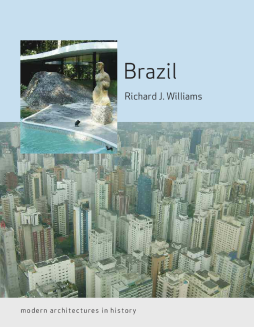
Additional Information
Book Details
Abstract
Set against a backdrop of breathtaking natural beauty, Brazil’s striking modernist architecture has long garnered international acclaim. But these well-known works are not fully reflective of the built environment of Brazil, and with this volume, Richard Williams unearths the rich architectural heritage of Brazil.
Spanning from 1945 through today, the book examines Brazilian architecture beyond the works of renowned architects such as Oscar Niemeyer and the “Carioca” architects of Rio de Janeiro. Williams investigates issues such as the use of historic architecture, the importance of leisure and luxury, the role of the favela as a backdrop and inspiration for development, and the rapid growth of cities. From the designated world heritage site of Brasilia—a capital city that was planned from the ground up—to the installation work of artists such as Hélio Oiticica, Brazil delves into the origins and far-reaching influence of Brazil’s architectural modernism.
At a moment when Latin America is of increasing importance in global business and culture, Brazilwill be an essential read for all scholars of architecture and Latin American history.
"With this unbiased though not dispassionate history covering the 1930s to the present, Richard Williams considers Brazilian architecture's modernity within an expanded framework of Brazil's cultural and political movements. In this way, he breaks through the frozen narratives of Brazilian history, questioning canonical definitions of modernity, and taking into account the complexities of this vast country. Brazil is a hugely welcome, refreshing and penetrating book."
— Ruth Verde Zein, School of Architecture and Urban Design, Mackenzie University, São Paulo.Richard J. Williams is senior lecturer and director of the Graduate School of Arts, Culture and Environment at the University of Edinburgh. He is also the author of After Modern Sculpture and The Anxious City, and regularly writes for architecture and design journals including Blueprint.
